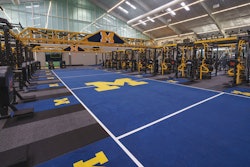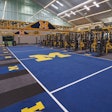Copyright 2018 Gannett Company, Inc.
All Rights Reserved
USA TODAY
If you're like me and gearing up to watch all four hours of ESPN's NBA draft coverage on Thursday night, prepare yourself to come away convinced that Deandre Ayton is the best prospect to join the league since Anthony Davis, Luka Doncic is a can't-miss star, Jaren Jackson Jr. is a prototype big for the modern NBA, Trae Young's shooting range begins when he steps into the arena and a bunch of teams picking in the second round came away with "steals."
This is, of course, a fairy tale. But it's one we get sucked into year after year, even though the evidence shows us that at least 90% of the commentary surrounding the draft will look ridiculous by the end of a player's first contract.
Just consider 2013, when Jay Bilas declared that No. 1 pick Anthony Bennett "is absolutely a stretch 4 that can score from Day 1 in the NBA," (he didn't score Day 1, Day 150 or Day 500); when Bill Simmons claimed that No. 4 pick Cody Zeller "got picked apart too much" by scouts (he didn't get picked apart enough); and when Bilas fawned over No. 7 pick Ben McLemore, calling him "the guy who, from a talent perspective, is the most likely in my judgment to be an All-Star out of this NBA draft class" (To be fair, he didn't specify an All-Star in what league).
Or how about the next year when Bilas started the show declaring it "the deepest draft of quality talent we've seen in a long, long time," and it turned out similar to every other draft. Jalen Rose waved the pompoms for fellow Michigan Man Nik Stauskas at No. 8, comparing him to Drazen Petrovic and calling him "one of those guys that goes on the court and thinks I'm the best player out there" (267 games later, he's surely been disabused of that notion) and the entire panel agreed that Michigan State's Adreian Payne was a brilliant pick by Atlanta at No. 15. "A classic stretch 4," Simmons said (the Hawks hit the eject button on Payne fewer than eight months later, trading him straight up for what became the No. 19 pick in this year's draft).
This isn't meant to pick on those guys, who are all excellent at what they do, put in a lot of work on prospects, make a ton of smart observations and know way more about basketball than 99.99% of the people who will be watching the draft.
But it raises the question: Why can't we bring ourselves to be more skeptical about the draft when confronted with the reality that most of the players will fail to live up to the perception of them on Thursday night? Why the breathless hype over unpredictable 19- and 20-year-olds and so little realism about the actual odds of getting someone great?
If you look at the numbers, a singular truth emerges: Every NBA draft will more or less give us a couple of future All-Stars, a handful of other starting-level players, a handful more who become role guys and a whole bunch who are never heard from again. There's some slight variance from year to year, of course, but that's the template and it really doesn't change much.
People have come up with a lot of different ways over the years to organize data from the NBA draft, but here's the one that resonates most for me: Over a 25-year period from 1990 to 2014, 80 percent of the players drafted No. 1, 2 and 3 have averaged at least 10 points in the NBA. From picks 4-7, it drops to 61 percent. From picks 8-11, you're down to less than a coin flip chance (42 percent) of finding a double-figure scorer. And then from picks 12-15, it dips all the way to 29 percent.
Again, that's just one metric, and there are certainly a number of valuable defensive players and bench guys who average fewer than 10 points. But as a baseline for judging the eventual impact of lottery picks, it's pretty clear: Despite all the hype and analysis built into Thursday night, we're basically throwing darts after the top three.
Another thing you'll hear over and over at the draft is that a particular team "can't afford to miss" on its pick, which is utter nonsense when you look at the record of the league's most successful teams.
The Warriors changed their franchise by nailing Steph Curry at No. 7, but the next year they took Ekpe Udoh at No. 6. That was a massive miss, but it didn't matter because they kept making picks and eventually found Klay Thompson at No. 11 and Draymond Green in the second round. Danny Ainge is almost universally hailed as a draft guru, but he's whiffed on a bunch of first-rounders too (Fab Melo, James Young, R.J. Hunter). Until the bottom fell out this year, the Grizzlies made seven consecutive playoff appearances and a Western Conference finals despite wasting first-rounders on Hasheem Thabeet, Xavier Henry, Jordan Adams, Tony Wroten and Wade Baldwin.
Therein lies the paradox of the whole enterprise. The most important thing that could come out of any draft (picking an All-Star) is the least likely to happen, while everything else tends to be fairly insignificant in the bigger picture of constructing a good team.
Yet for four hours on Thursday, we're going to get sucked in again to the cynicism-free sugar high of another draft, where every prospect is going to be the best version of themselves, their weaknesses are all fixable and the fit alongside their new teammates is seamless.
Then next year, even when we've figured out that half these guys can't play, we're going to do it all over again.
Read More of Today's AB Headlines
Subscribe to Our Daily E-Newsletter
Terms and Conditions Privacy Policy































